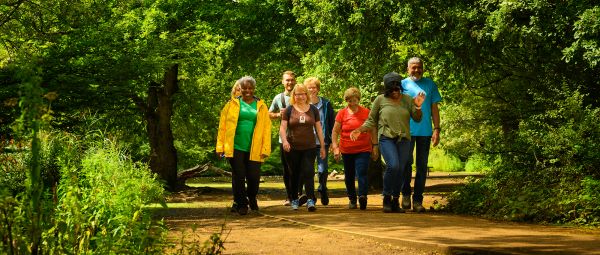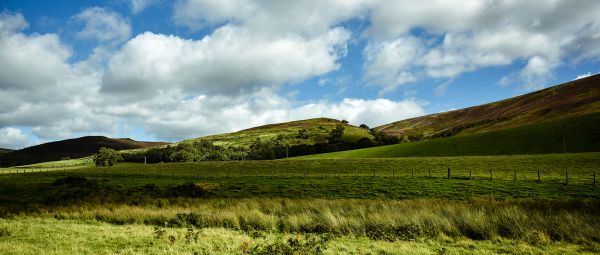Are walkers in England finally set to gain from farming reforms?
After years of campaigning, there’s finally progress on farm payments for access

23 January 2024
Finally, after persistent campaigning by the Ramblers, the government has committed to funding farmers and land managers for improved access to the countryside. This is an encouraging and positive step forward.
Nonetheless, questions still remain about how the system will work in practice, so that walkers really do benefit from taxpayer support for the farming community.
A long overdue decision
Following the vote to leave the EU, the government began developing its new farm payments regime, known as Environmental Land Management (ELM). Heralded as one of the benefits of Brexit, ELM is a voluntary scheme that replaces EU subsidies in England which were criticised by the government as providing poor value for money for taxpayers. The scheme is based on the principle of ‘public payments for public goods’.
Public goods include things like cleaner air and watercourses, healthier soils and habitat restoration. And after significant campaigning by the Ramblers, the government accepted that public access could also receive funding. This decision was enshrined in the Agriculture Act 2020. Crucially, though, this legislation didn’t provide any detail on how this would work, nor did it compel the government to act: it gave ministers powers to provide funding for certain public goods, but no duty to do so.
Ever since the Agriculture Act, progress on what farmers would actually be paid to do has been slow. This hasn’t been helped by a changing cast of ministers at the Department for Environment, Food & Rural Affairs (Defra) – there have been seven secretaries of state since Brexit – not to mention the challenge of designing a new system of farm payments from scratch. Despite repeated promises from government, at times it looked as if payments for access were going to be shelved.
Persistence starting to pay off?
Behind the scenes we’ve been raising concerns with government about the lack of progress, and explaining at every opportunity how payments to farmers and land managers could help improve the existing path network and secure new paths.
At long last, buried in a technical annex published early in the new year, there are signs that our determination is starting to bear fruit. For the first time, Defra has set out the payments it intends to offer farmers for the provision of permissive paths, as well as improvements for people with reduced mobility.
Outstanding questions
It's positive that the government is finally making some progress on ELM and access. But we need to ensure that it follows through on this. So in order to ensure that the public really benefit from the scheme, a number of key questions remain. For example:
-
How will decisions be taken about the location of new paths?
-
How will new access opportunities be promoted to the public?
-
Why is the government only considering payments for permissive paths, and not permanent access?
We will be putting these and other questions to Defra, to ensure we secure the best outcome possible for walkers in England.

An attack on nature and our connection to it?
Environmental Land Management has the potential to connect more people with nature. But its future is in jeopardy.

Reforming railway crossings is a test for devolution
Reforming access at level crossings is a potential win-win for outdoor recreation and for re-setting devolution, says Ramblers Scotland director Brendan Paddy.

Agricultural reform
Changes to farming policy are a great opportunity to strengthen our connection to the natural world.